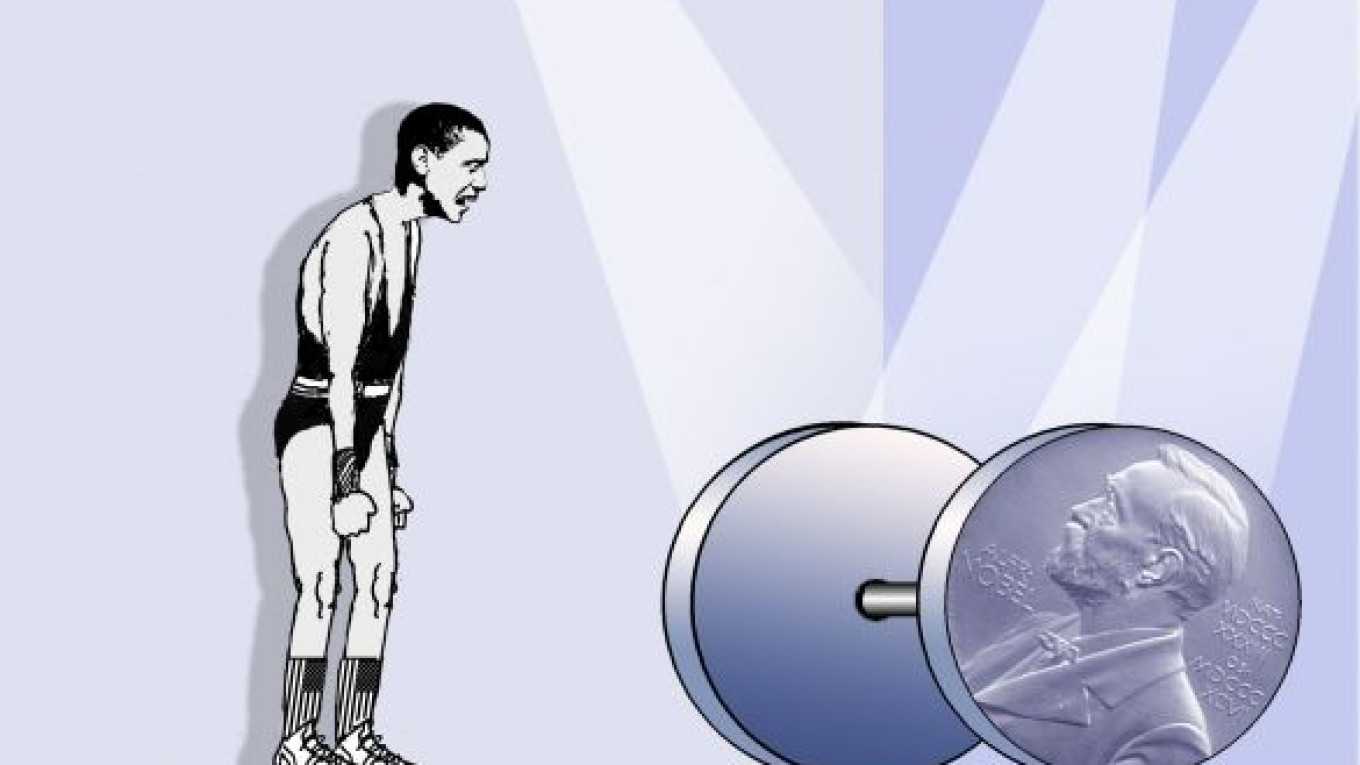A U.S. president's powers are greatest outside the United States. President Barack Obama was awarded, much in advance, the Nobel Peace Prize in 2009. His second term should become the vindication of that high award. There are several things he needs to do to fully deserve the Nobel apart from withdrawing from Iraq and Afghanistan. He should craft a very careful course on Iran, be wise on China and become strategic on Russia.
Being careful on Iran means, above all, not jumping the gun. Iran's nuclear program is probably aimed at gaining nuclear weapons capability, but an attack against Iran would make Iranian nuclear weapons a certainty. The only way to prevent an Iranian bomb is by reaching a hard bargain with Tehran and making sure it sticks. Accusations, sanctions and military exercises are not enough.
Obama's first outreach to the Iranian leaders in 2009 was scuffled amid the election-related unrest within Iran. In his second term, Obama needs to try harder. This would mean making sure that Israel does not strike Iran on its own, which would lead to a wider war in the region and, most likely, global calamity.
Obama also needs to consolidate the international community behind a nonproliferation agenda, and this means offering Iran security guarantees, a path toward reintegration into the international community and, ultimately, a normalized relationship with the U.S. Opening up to Iran and establishing diplomatic relations with the country, like opening up the Soviet Union in the last century, would do more to strengthen security and stability in the region than all of the U.S. efforts to contain Iran.
China has just begun its transition to the fifth generation of Communist Party leaders. The new crop — the first not to have been personally designated by former Chinese leader Deng Xiaoping ?€” will face serious issues both at home and internationally. Beijing is at the same time more assertive in defending and promoting its own interests. Worried about Washington's "pivot" toward Asia, China is also nervous about its neighbors seeking stronger U.S. support on territorial, security and other military-related issues. As a result, many Chinese are becoming more nationalist. This creates pressure on China's leaders, who might use nationalist mobilization to shore up their power.
China will never supplant the U.S. as a world leader. It does not present a viable alternative to the U.S. in economic, ideological or governance terms. Nor can Beijing challenge Washington militarily. There are serious issues between China and the U.S., and they are being handled by negotiations. Obama will need to continue working toward accommodation with China, even as several vested interests may call for getting tough on Beijing. He should resist populist pressures to take a tougher line on China's economic and foreign policies ?€” something Republican candidate Mitt Romney tried to exploit during the presidential campaign ?€” and instead intensify contacts with the Chinese with a view to preventing conflicts between them and U.S. allies in the region.
With regard to Russia, Obama needs to upgrade the relationship from its current tactical level to a more strategic one. There are a number of useful steps his administration could undertake to develop the relationship, such as granting Russia permanent normal trade relations with the United States and helping Russia along the road to joining the Organization for Economic Cooperation and Development, which consists of the world's top 34 economic powers. Russian needs to join this club.
The most important strategic goals on the U.S.-Russian agenda include reaching an agreement with Moscow on missile defense installations ?€” for example, developing a framework for joint operations ?€” to change a key component of U.S.-?Russian relations from being adversarial to becoming more collaborative. Second, Washington should factor Moscow into the U.S. pivot in the Asia-Pacific region to take account of Russia's geopolitical and energy ties with China. Third, the two countries need to cooperate more closely on the Arctic, where Russia has the longest shoreline.
U.S. foreign policy cannot afford to ignore Russian domestic politics, which has a strong U.S. component that is often exploited by both Kremlin spin doctors and their opponents. But if Russia is to change, it will be done by Russians themselves. While the global environment has a clear impact on that change, Western foreign policy initiatives that try to influence those changes are likely to backfire. Making sure that U.S. values are in harmony with U.S. national interests will be a major task for the Obama administration during his second term.
Dmitry Trenin, director of the Carnegie Moscow Center, is author of "Post-Imperium: A Eurasian Story."
Related articles:
A Message from The Moscow Times:
Dear readers,
We are facing unprecedented challenges. Russia's Prosecutor General's Office has designated The Moscow Times as an "undesirable" organization, criminalizing our work and putting our staff at risk of prosecution. This follows our earlier unjust labeling as a "foreign agent."
These actions are direct attempts to silence independent journalism in Russia. The authorities claim our work "discredits the decisions of the Russian leadership." We see things differently: we strive to provide accurate, unbiased reporting on Russia.
We, the journalists of The Moscow Times, refuse to be silenced. But to continue our work, we need your help.
Your support, no matter how small, makes a world of difference. If you can, please support us monthly starting from just $2. It's quick to set up, and every contribution makes a significant impact.
By supporting The Moscow Times, you're defending open, independent journalism in the face of repression. Thank you for standing with us.
Remind me later.


